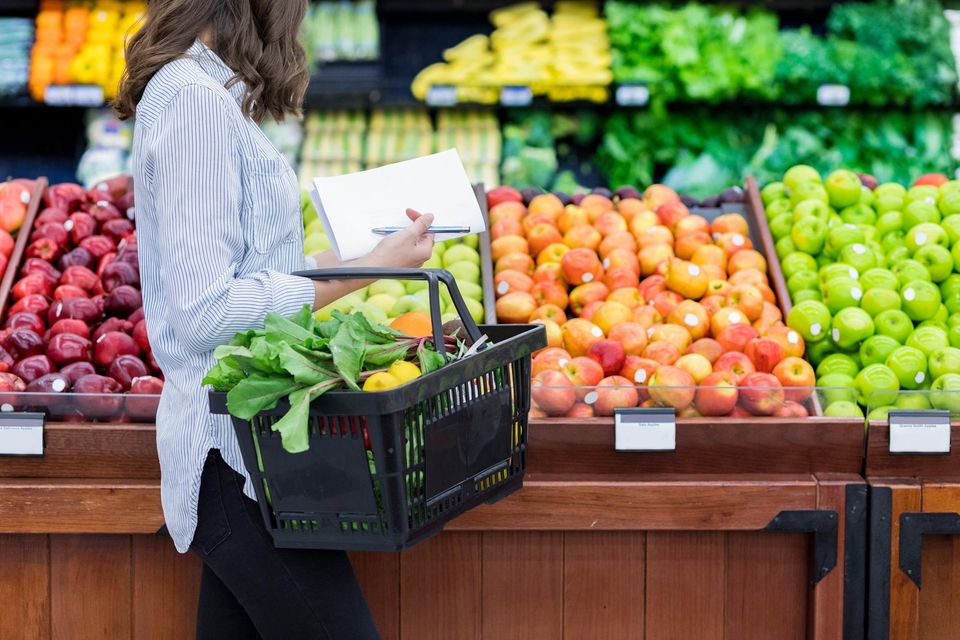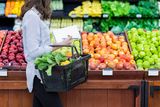Food prices to keep rising but rate of increase to slow down significantly
The supermarket price war is hotting up after Tesco cut prices on 700 items. Photo: SDI Productions
Grocery prices are due to keep rising but the rate of increase is set to slow down to half its current level by the end of the year.
Retail expert Damian O’Reilly said commodity input prices have been falling for more than half a year, allowing retailers to cut consumer prices.
But it will take rivals of Tesco a few days to match its price cuts across 700 products as they will need to negotiate with their suppliers, said Mr O’Reilly, a senior lecturer in retail management at Technological University Dublin.
He said he expects Dunnes Stores, Supervalu and Aldi to cut prices by the weekend.
His comments came after official figures showed food-price inflation continued to increase last month.
Mr O’Reilly said: “Input costs have been falling for six to seven months. This means consumer prices should stabilise.”
He said he expects grocery prices to keep rising but the rate of increase will be between 5pc and 7pc by the end of the year.
Read more
This would be half of the current rate of food-price inflation, said Mr O’Reilly, who is a member of the Government’s Retail Forum.
Latest figures from the Central Statistics Office (CSO) show higher prices for meat, sugar, frozen fish, milk and eggs, with the prices of food and non-alcoholic goods rising by 12.7pc in the year to May.
This is a slight easing of the rate of food inflation in April when the cost of food rose 13.1pc in the year, according to the latest consumer price index from the CSO.
Prices of stables rose in May despite the main supermarket multiples cutting the prices of own-brand milk, bread and butter.
There were price increases for an 800g loaf of white sliced pan, with it up by 18c in a year.
An 800g loaf of brown sliced pan was up by 17c in the year, with two litres of full-fat milk 35c more expensive.
A pound of butter was up 40c when compared with May last year, the CSO said.
One major retailer is reducing prices by an average of 10pc across more than 700 products
Overall prices of goods and services rose by 6.6pc in May when compared with a year earlier.
This is down from an annual increase of 7.2pc in the 12 months to April.
It is the third month in a row that the rate of inflation in Ireland has fallen.
But it is the 20th straight month where the annual increase in the consumer price index has been at least 5pc.
The CSO figures show gas prices were up 50.2pc in the past year, flights cost 33.5pc more than last year, while home insurance is up 19pc and beer is up 8.4pc.
On a more positive note, car insurance was down close to 4pc in the year, petrol was down 14.6pc and bus fares have fallen by 18pc in the year. Childcare costs are down 22pc.
The move by Tesco to cut prices on hundreds of products caught its rivals on the hop.
Tesco is reducing prices by an average of 10pc across more than 700 products. It is estimated it could reduce the bill for a family that shops in Tesco by around €500 a year.
The price reductions represent a step up on the recent cuts to the price of own-brand bread, butter and milk announced by the main supermarket chains.
Finance Minister Michael McGrath said he expects other retailers to pass on input cost cuts in response to Tesco.
“I would expect that other significant retail providers in the grocery space will respond,” he said.
Discounter Lidl was dismissive of the Tesco price cuts.
It said it has continued to drop the prices of more than 100 products in its range as a direct result of the reduction in the cost of production for these items.
It said that after it reviewed Tesco’s price drops, the vast majority of products reduced are predominantly national brands which Lidl does not carry or carries cheaper own-brand options.
“Of the private-label products reduced by Tesco, the vast majority are still more expensive than Lidl everyday prices.”
Aldi said it will continue to monitor prices and the market to ensure that it will “always have a discount versus the more expensive full-price supermarkets, whether on a basket of goods or a full weekly shop and especially on our own-label range, which accounts for 95pc of our products”.














